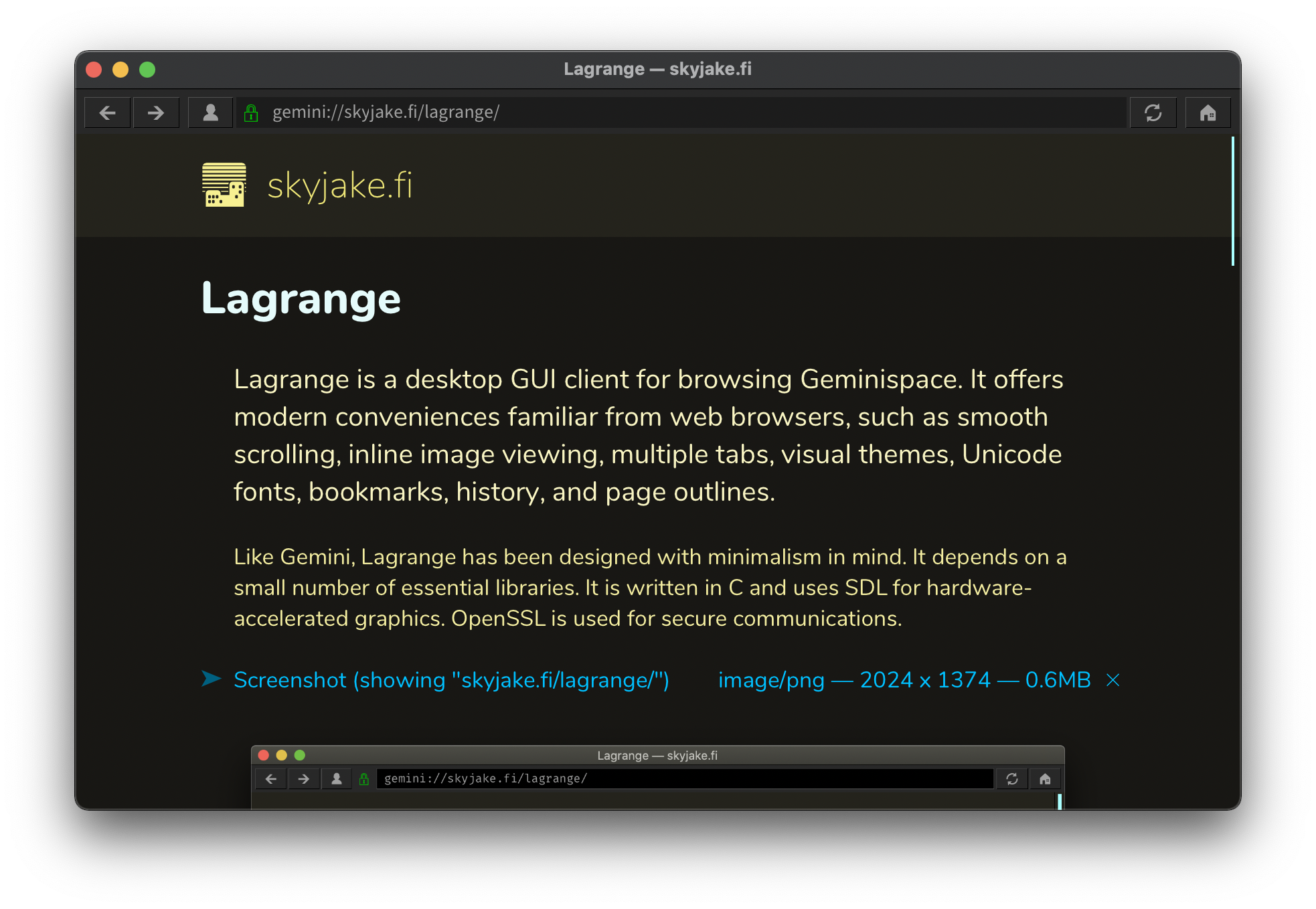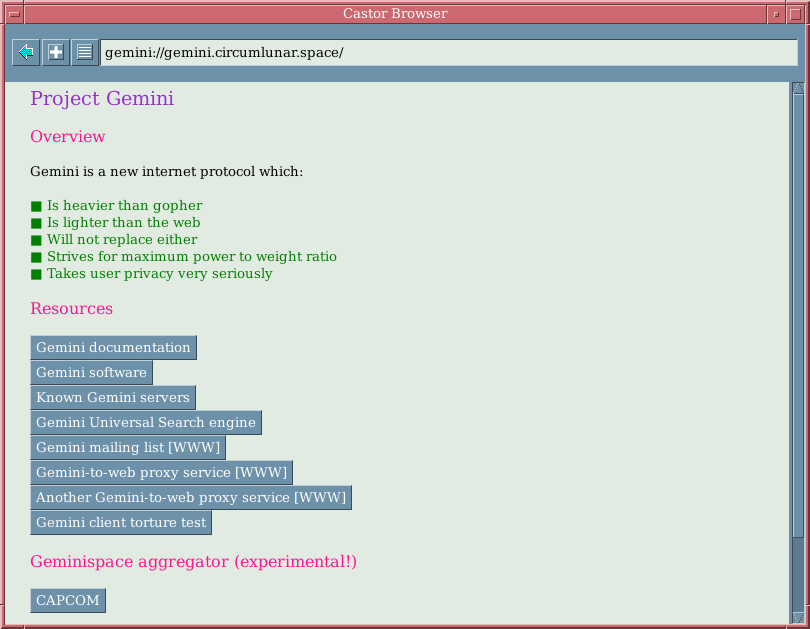Gemini Protocol
Gemini is a very lightweight but not too simple of a protocol. It was developed as a reaction to complicated, bloated websites that can slow down even gaming computers with video advertisements, trackers, crypto-malware, and more.

What the Gemini Protocol is, and what it isn't. The Gemini Protocol will not be the greatest thing on the Internet since Netscape Navigator, nor is it intended to be. It has more features than Gopher but not nearly as many as HTTP. It's designed to be simple to avoid pitfalls of the future. HTTP is very flexible and adaptable to the future. So adaptable that we have supercookies, browser fingerprinting, and trackers. Gemini aims to avoid that by removing as many non-essential features as possible. There are many use cases for Gemini, such as people who operate personal websites but want a simple solution for their blog.
🖥 How to get started: Clients
Lagrange

This client is (arguably) the best one to use in the Geminispace. It uses GTK for its GUI and comes with most features that you would expect with a modern browser. You can use keyboard shortcuts or right-click on the webpage to bring up a menu and enable certain actions. Binaries are available on Windows and Mac; Linux users must build from source (very easy and didn't fail for me).
Castor

One of the earliest Gemini browsers for GTK, this has the '90s written all over it. Castor includes support for Gopher, Gemini, and Finger. No binaries are available and must be built from source.
Kristall
If you're running a qt-based distro, then Kristall is a good alternative. It has support for Gopher, Gemini, and Finger. It's available as an AppImage on Linux or from the AUR; however, Windows users will have to build from source.
GemiNaut

For those on Windows, this client is perhaps the best client for you. Many themes are available.
Agregore
It's able to surf Gemini, Gopher, IPFS, Hypercore, and HTTP websites. Even though this web browser does a little bit of everything, it excels at nothing. No support for tabs, bookmarks, search, or other modern necessities, and the gear button is broken. This is open source software with a lot of potential, so expect it to get better in the future. Available as an AppImage or deb file on Linux. Windows and Mac users can download an exe and dmg file, respectively.
🔍 Search
There are two main search engines available on the Geminispace. The main one is GUS (Gemini User Search), and it works pretty well. The second one is Houston, although the security certificate is expired.
🖳 Hosting Content
There are a number of free servers available that you can host your blog on. Since it's a simple (mostly text) protocol, you shouldn't have any problems with storage limitations. The largest need in the Gemini community is more content.
You can also host your own server. There is a plethora of Gemini server software available.
🔣 Language
Writing a page within the Geminispace is very easy with minimal formatting. Headers are indicated with an (#, ##, or ###) symbol. Links are indicated with (=>). You can find out more by going to: https://gemini.circumlunar.space/docs/specification.html and scrolling down to section 5.
🛈 More Info
If you'd like to know more about Gemini, head over to https://gemini.circumlunar.space/ where you can even test drive a few websites using a proxy.
